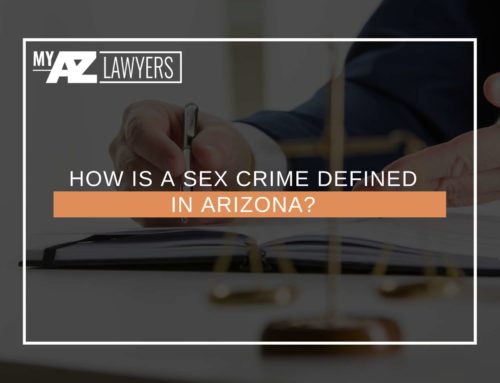How Can An Incentive Trust Fit Into Your Estate Plan?
What Is An Incentive Trust & How Does It Work?
An incentive trust is a great way to provide financial incentives for people who manage your investments or who act as trustees of the trust. Whenever you create an incentive trust, you establish rules and procedures that govern the distribution of assets on behalf of the beneficiaries.
However, if you are thinking about establishing an incentive trust, there are a few things to keep in mind. An Arizona estate planning lawyer will explain some of them below.

What Choices Do You Have In State Planning?
The advantage of estate planning is that you may tailor it to your specific need. The possibilities are practically limitless, which means you can create an estate plan unique to you and your circumstances.
You should be careful in figuring out how to build an estate plan that meets your objectives if you are concerned about how an inheritance would impact your loved ones’ drive to succeed in life. The incentive trust is one possibility.
What Is An Incentive Trust?
An incentive is a type of trust that provides periodic payments to a named beneficiary but omits the amount until a specified condition is met. This state is what you use to persuade your loved one to do something or to reach a specific objective.
Incentive trusts are one approach to encourage your beneficiaries to achieve their dreams or walk a more positive path. They can be used to coerce someone into seeking treatment for an addiction or to guarantee that a recipient has acquired the level of personal maturity to manage their inherited fortune.
Understanding an incentive trust is not always easy. That’s why hiring a Tempe estate planning lawyer might be helpful depending on your circumstances.
Funding for incentive trusts typically comes from a cash or a rising asset. Creating and funding a trust is not the same as making a will. With trusts, you designate someone you trust to function as the bank, more like active bank accounts.
Here are some examples of conditions that can trigger an incentive trust:
- Obtaining a college degree
- Maintaining a full-time position for a predetermined amount of time
- Getting married
- Having a baby
- Completing drug and alcohol rehab
Creating The Language For An Incentive Trust
Although the concept of an incentive trust may appear easy, you must ensure that your legal paperwork is clear. If you don’t, you can end up being less flexible than you meant or you might make it too simple to satisfy the criteria. Therefore, be sure that the restrictions you impose on the trust and its assets are very clear and very specific.
Also, as you write an incentive trust, consider what should happen to the trust’s assets if your named beneficiary fails to achieve the requirement for a justifiable cause. It might not be an easy task, but it’s necessary. You can always ask a Gilbert estate planning lawyer for better help.
How Do Incentive Trusts Work?
Each trust has three critical roles that must be fulfilled. These are the functions of the grantor (or originator), trustee (or manager), and beneficiary.
You don’t necessarily need three different people to fill out each role. You can have multiple beneficiaries or trustees or you can set up, manage, and receive a trust for many reasons. However, you will probably need at least three different parties to make the incentive trust work.
The grantor, sometimes known as the settlor, creates incentive trust. The trust is usually named after them.
The trustee manages the trust when the grantor or settlor dies or at the grantor’s request. The trustee’s function is typically the most complicated because they have a fiduciary obligation to the trust’s grantor and beneficiaries and must carry out the trust’s objective. Additionally, it is their responsibility to appropriately distribute the trust’s assets to the legitimate heirs when the trust must is dissolved.
A trust’s beneficiaries may also differ. Some beneficiaries will only get the incomefrom a trust for its lifetime, with the remainder going to someone else or an organization.
What Happens If The Specified Requirement Isn’t Met?
Contacting a Mesa estate planning lawyer is the best course of action in this case because you must state what will happen if your beneficiary doesn’t fulfill the requirements you’ve set down.
You may allocate the assets to other recipients, or you may choose to direct the funds to charitable organizations. It’s up to you!
Creating A Plan That Works With A Trusted Lawyer
Estate planning can involve a lot, but for good cause. You want to remove all doubt and make sure that your loved ones are taken care of. Consequently, careful estate planning is crucial.
If you’re interested in learning more about the benefits of estate planning, you might want to discuss your situation with a legal team that can provide you with the best guidance. Contact My AZ Lawyers today to find that legal team and discuss your options!
Arizona Offices:
Mesa Location:
1731 West Baseline Rd., Suite #100
Mesa, AZ 85202
Office: (480) 448-9800
Email: info@myazlawyers.com
Website: https://myazlawyers.com/
Phoenix Location:
343 West Roosevelt, Suite #100
Phoenix, AZ 85003
Office: (602) 609-7000
Glendale Location:
20325 N 51st Avenue Suite #134, Building 5
Glendale, AZ 85308
Office: (602) 509-0955
Tucson Location:
2 East Congress St., Suite #900-6A
Tucson, AZ 85701
Office: (520) 441-1450
Avondale Location:
12725 W. Indian School Rd., Ste E, #101
Avondale, AZ 85392
Office: (623) 469-6603














